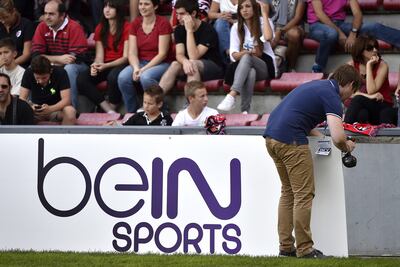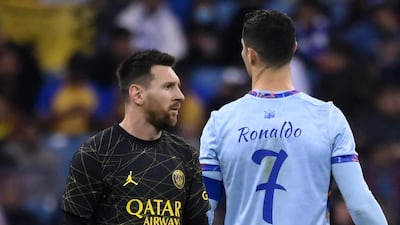The removal of BeIN Sports channels from Etisalat e& platforms at the beginning of this month may have surprised consumers, particularly because the whole situation played out so quickly.
Statements moved swiftly from “discussions are ongoing regarding renewal” to customers being told that BeIN-supplied channels would be discontinued “due to commercial reasons, effective June 1”, shortly before the switch off occurred.
Consumers who currently access BeIN channels via du’s Home TV service, meanwhile, have been told that normal service will continue on the platform until the end of the month, but that no confirmation can be offered regarding the availability of the Qatari broadcaster’s channels after that date.
Sports fans need not sink into a pit of despair, however, as there continue to be alternative and legal means by which to access the channels directly from BeIN. On the flip side, there is a good chance that those who use illegal streams to access matches or channels for free have contributed to the breakdown of service provisions for others.
Beyond that, the switchover to streaming platforms tells us a great deal about the future of TV sport and channels in general.
A golden age of television this may be, as any fan of multi-series drama shows would concur, but it is also an ever more complicated place to legally consume content in.
And more broadly, this confirms that sport has become the rolling battleground for subscribers. This also underlines how the unbundling of content, which the streaming age has brought into being, could end up proving more expensive than the “one-payment, one platform” days of old satellite subscriptions.

Generalist football fans can now follow pretty much whichever league or player they want on streaming, but to do so comes at a rising cost.
Lionel Messi, for instance, will soon play for Inter Miami in the US, and if you are a fan of the Argentine World Cup winner, Major League Soccer is an Apple TV+ product.
His great rival, Cristiano Ronaldo, is famously plying his trade in the Saudi Pro League – Karim Benzema and other stars are expected to join the league this summer – whose matches are screened on Shahid.
Erling Haaland, the new face of the English Premier League, will still be on BeIN Sports channels next season, but those Etisalat by e& consumers will be required to sign up for another agreement.
Europe’s other top football leagues are spread across platforms, including the Italian Serie A, so too are other major sports. Cricket fans have become familiar with having to dart between platforms to keep up with the Indian Premier League, the World Test Championship or the Ashes.
It’s now a fragmented content world, with the slice-and-dice approach to TV rights constantly chopping sports rights into smaller chunks.
While there is value in that approach – in that consumers get to subscribe to what they want to watch – it also means your credit card bills and bank statements are likely to list a long schedule of small subscription payments.
It is also unlikely that many consumers know precisely how many dirhams they will spend each month to follow their favourite teams or competitions.
Compare this to the music industry today and to the satellite TV world of only a few years ago.
The provision of music has become thoroughly commoditised in the past decade, driving price down and increasing choice.
Many of us have grown used to paying a relatively low single fee to one provider – be that Anghami, Amazon, Apple or Spotify – for continued access to a catalogue of new releases and old recordings that is breathtakingly comprehensive.

In the days of single satellite TV providers operating in a market, that was also their promise – pay one fee, once a month for all the channels and content you could want to watch and some others that you don’t – even if the cost of their subscriptions was far greater than the fee you may pay to Spotify.
Indeed, the reason Netflix could keep adding new subscribers for years was that it offered comprehensive coverage at a low price and combined it with good original content. The gradual expansion of the competition, such as Amazon Prime or Disney+, has chipped away at Netflix’s first-to-market dominance, not least because sections of its back catalogue have migrated to other platforms.
Fourteen years ago, customers thought this was what they were getting when the Orbit Group and Showtime Arabia merged to create the region’s largest operator at the time.
Back then, executives described the merger, which created OSN, as bringing about a “one-stop shop” for consumers in a “defining moment” for TV entertainment.
However, the rights to the Premier League soon moved to another provider, Abu Dhabi Media. Three years later, BeIN claimed them and now a decade further on, the destination point of deplatforming from telecoms providers has been reached.
The future of sport on streaming is more of the same: rights packages cut up into ever smaller season passes held by multiple different entities competing for your attention and your credit card details.
This consumer, for one, yearns for the days of one-stop shops, where all the sports and entertainment programmes were housed in one place and available for one monthly payment, rather than that string of payments leaving my account every few weeks.
Sadly, the era of unbundled content is unlikely to be replaced by a new round of rebundling, because that’s just an old media solution to a new world reality.


